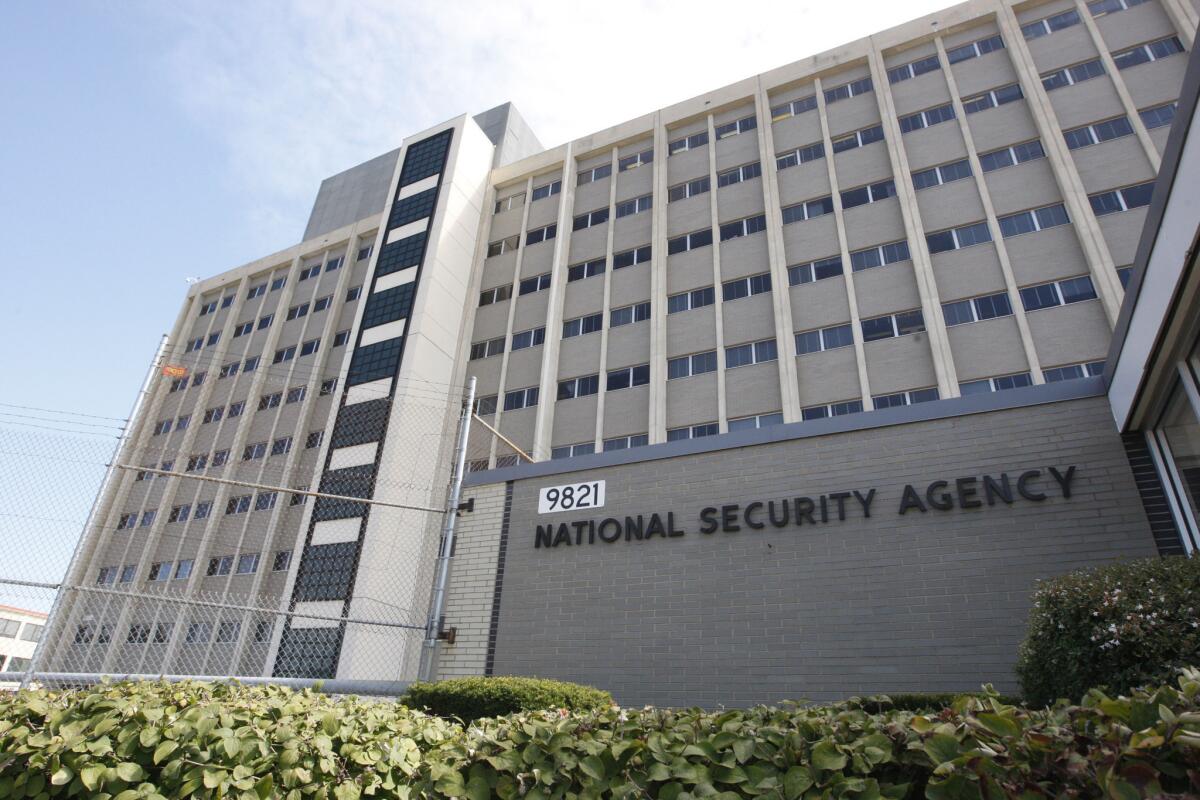National security: Partisan flip-flopping on surveillance

- Share via
Government surveillance might be able to ignite the common ire of principled foes (e.g. Bernie Sanders and Rand Paul), but when it comes to the rest of the party, political preference seems to matter a great deal.
Look no further than the new Washington Post/Pew Research Center poll on the National Security Agency’s phone-tracking program. It shows a stark partisan shift since 2006 on the issue of government surveillance:
“The reversal on the NSA’s practices is even more dramatic. In early 2006, 37% of Democrats found the agency’s activities acceptable; now nearly twice that number — 64% — say the use of telephone records is OK. By contrast, Republicans slumped from 75% acceptable to 52% today.”
Here’s what those numbers look like broken down, in terms of political party and support for the surveillance program:
2006
37% Democrats
75% Republicans
2013
64% Democrats
52% Republicans
Both parties have backpedaled here, and it’s hard to believe policy was the primary motivation.
When a Republican administration was looking at our phone records in 2006, Democrats balked. But now that a Democratic administration is at the helm, support has surged 27 percentage points. With Republicans, the opposite is true, with support declining 23 percentage points since 2006.
Yes, it’s possible that there are several reasons for this. A New York Times post lists a few:
- Checks and balances. In 2006, Americans were reacting to news that the government had not bothered to obtain court approval prior to tracking calls. Now the government loops in the courts. Democrats might think that judiciary involvement makes all the difference.
- Time heals all wounds; 2006 was, obviously, much closer in time to the Sept. 11 attacks. Maybe Republicans who have switched sides think of NSA surveillance as an emergency measure that’s no longer justifiable.
Both are plausible but don’t necessarily strike at the heart of the matter. It’s not likely that many Democrats who objected to the George W. Bush administration’s policy have been suddenly swayed because a Foreign Intelligence Surveillance Court (often accused of serving as a rubber stamp) is now signing off on warrants. On the second point, it’s true that time heals all wounds, but the Sept. 11 attacks were not that much closer to 2006 than they are distanced from today.
However, a third point on the post’s list may provide a more compelling reason:
- Nixon in China. Democrats may feel that if the Obama administration has decided to continue a Bush-era program, that must mean it’s really necessary. That’s not hypocrisy, exactly; more like a matter of trust/mistrust in leadership.
It’s likely that Democrats do trust this program more under the Obama administration than they did during the Bush administration. And the inverse provides an explanation for the decline in Republican support.
Yet, if point number three provides a possible reason for the findings, then it does reveal a hypocrisy about politics and our national security policy: We care more about the spy than we care about the spying.
ALSO:
Stay calm and let the NSA carry on
McManus: Obama’s foreign policy reset
Sen. Sessions on immigration bill’s broken promises
Twitter: @danielrothberg
More to Read
A cure for the common opinion
Get thought-provoking perspectives with our weekly newsletter.
You may occasionally receive promotional content from the Los Angeles Times.






